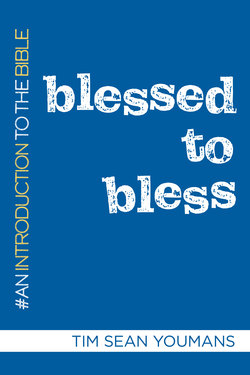Читать книгу Blessed to Bless - Tim Sean Youmans - Страница 22
На сайте Литреса книга снята с продажи.
Оглавление11
The Call of Abram and Sarai
Watch an overview of Genesis chapters 1–11 from The Bible Project. Then read Genesis chapters 12–13. This is known as the Call of Abraham.
God comes to a descendant of Noah and tells him that he will make him and his descendants a great nation. He will bless him, curse those who curse him, bless those who bless him, and his name will become great. But there is a caveat. Do you see it? Through you all the nations of the earth will be blessed.
Could this exchange between God and Abram be the thesis for the entire Bible? God blesses Abraham so that through his descendants all the nations of the earth will be blessed. Jesus, a descendent of Abram, ultimately fulfills this promise on the grandest of scales. In this way, the Bible is a unified story that leads to Jesus. But as you will see, it is a long and convoluted road getting there. For many Christians using this book to read through the Bible, this might be a frustrating journey. You might ask, “Can’t we study Jesus from the beginning?” In some respects, that would be like reading the last chapter of a novel while you are reading the rest of it. There will be times we will look forward toward Christianity and point out the ways the Old Testament is leading to Jesus, but for the most part we are going to experience this history in a way similar to the people who then experienced it.
Patriarch and matriarch. The head father and mother of a family or tribe. Abraham and Sarah are the chief patriarch and matriarch of the Hebrew culture.
How do you feel about this idea that God tells a particular person that his family, and eventually the culture that emerges from them, are charged with a special purpose, that of blessing the entire world? What could that possibly mean? Was Abram interested in such a thing?
Think of it this way: let’s say God told you he would make you the most celebrated person in your community. Everybody would know you, from the elementary students, through middle school up to high school, and all the way up through the administration. You would be respected and everyone would get excited whenever they saw you. But there is a catch: you have to use that influence and power to make sure everyone is doing okay. If someone was being bullied, you would have to step in. If someone was struggling with school, you would talk to them and make sure they had tutors or the help they needed. You would advocate for them among their peer groups, talk to the principal, their teachers, etc.
Would you want that gig?
Abram is considered a person of great faith because he leaves the security of his father’s tribe land and starts his life over in the land of Canaan. (By the way, where have you heard the name Canaan before? Genesis 9:25?) However, read carefully; it isn’t quite that simple. Immediately after Abram’s great act of trust in God, he folds like a cheap accordion; escaping a famine he goes to Egypt and tells the Pharaoh that Sarai is his sister and not his wife, being afraid they would kill him in order to take her because she was so beautiful. But didn’t God just tell him that he would protect him on this Vision Quest? God promised to “curse those who curse him.” These two pictures of Abram and Sarah establish a pattern you should be looking for as you read on—faithful and faithless. Are Abram/Abraham and Sarai/Sarah people of great faith? Or are they not?
Questions for Reflection or Discussion
1. What has been the hardest change you have made as a family? Who did you trust the most in that situation? Each other? God?
2. When you get scared or anxious, how do you handle it? What or who helps you get through it?
3. If God offered you a position of privilege but it required that you “bless all the people around you,” would you take that deal?
4. If you had to pick up and move away to a strange land, who would you take with you besides your immediate family and why?
